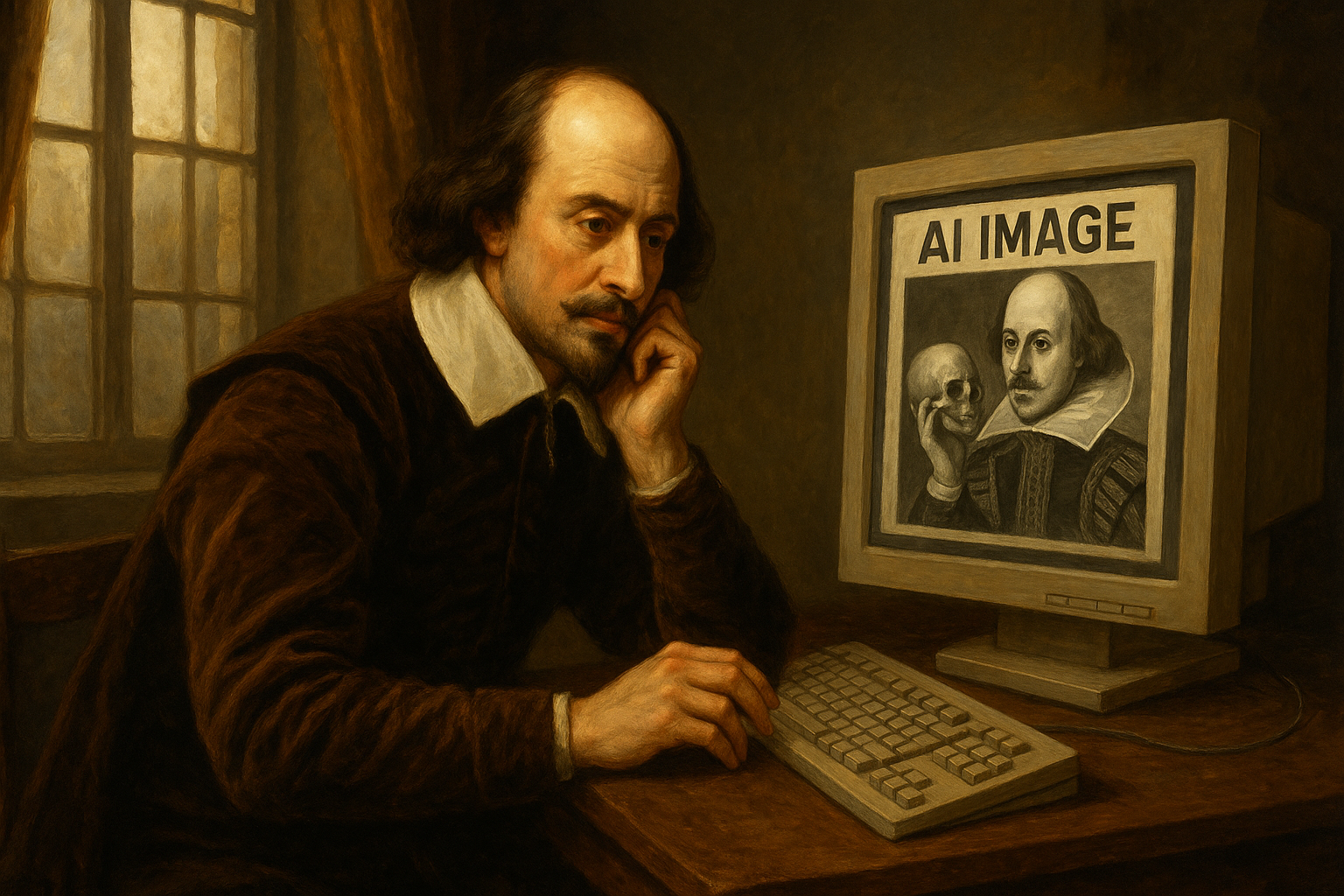Using AI? For Shame!

“Writing is not necessarily something to be ashamed of, but do it in private and wash your hands afterwards.”
— Robert A. Heinlein
I've always loved that line. Heinlein had a gift for punching through the self-importance of writers with a smirk and a scalpel. It's a wink and a warning, isn't it? Writing is a little suspect. A little indulgent. Maybe even a little dirty. And if you are a writer, admit it. You do tend to look at yourself with a slightly higher than average, totally non-zero, level of self-importance. Come on, admit it. This is a safe space.
Or it was. Where was I? Oh yeah... writing is slightly dirty and shameful.
And yet, here we are, layering one more taboo onto the stack: artificial intelligence. Not only are you writing, but now you've brought a machine into your unholy ritual? For shame!
Before you ask, yes, I wrote this myself. Yes, I used (or will have used) AI to generate the banner image. I also used ChatGPT for research (not for this because it's just me riffing, but other stuff), and to do a final edit (even if it doesn't look like I ever edit).
Except it isn’t shame, is it? Or at least, it shouldn't be. But try telling that to the whisperers. The ones who send you a message on the side, confessing that yes, they used ChatGPT and its brethren (or sistren) to get through that blog post, or that yes, they generated the image of the astronaut-cat-druid on the cover of their zine. But don't tell anyone. No one can know.
“Here's the smell of the blood still: all the perfumes of Arabia will not sweeten this little hand.” Lady Macbeth, or rather Shakespeare, knew a thing or two about hand washing.
The AI is the ghost at the feast. Everyone sees it hovering over the table, but they pretend it isn't there, because acknowledging it would force them to admit how much of the meal it cooked.
This strange guilt, this refusal to admit to the use of a tool, comes from a few places (and yes, I know that I often say it's a mistake to call it a tool, but work with me here). Part of it is this baked-in belief that creativity must involve suffering. If it didn't involve sweat and tears and the agony of the blank page, how could it be real? We’ve inherited that nonsense from a long line of romantic martyrs, all of whom would be turning in their graves at the idea of outsourcing their anguish to a silicon scribe.
And just to be clear, working with AI isn’t some magical, one-click shortcut either. It’s not, "put in a prompt and watch brilliance spill out." It’s iteration. It’s prompting, re-prompting, rejecting, reshaping, asking better questions, getting bad answers, pushing again. It’s a process. Sometimes it’s faster. Sometimes it’s a grind. It’s not suffering, but it’s not sorcery either. Your creativity drives the process.
But I think the fear runs deeper. There's a darker, quieter suspicion that if a machine can write, draw, or compose as well as we can – sometimes better, sometimes faster – (and use m-dashes) then maybe what we thought made us special, doesn’t. Make us special, that is. Maybe we’re not the chosen vessels of inspiration we imagined. Maybe we’re just wet computers with nostalgia.
Ah, nostalgia. I remember nostalgia fondly.
And so the denials. The whispered disclosures. The oddly defensive explanations: "Well, I only used it to brainstorm," or, "It just helped me organize my ideas," as though that’s somehow morally superior to letting the thing take a stab at the first draft. We sanitize the process. We erase the fingerprints. We pretend the ghost never visited at all.
"Out, damn spot!"
Meanwhile, the work gets done. Faster. Sometimes better. Sometimes not. But always with a new kind of collaboration, whether we admit it or not. Aye, there's the rub.
What fascinates me isn't that people use AI. It's that so many lie about it. Yeah, I may, or may not, be looking at you, over there in the corner. As though the tool invalidates the result. As though the presence of this synthetic intelligence renders the art impure. But impurity, dear meat-bags, is the human condition. We cut corners. We borrow ideas. We use spellcheck ,and filters, and Photoshop, and Lightroom, and Grammarly, and templates, and presets, and all manner of digital prosthetics... But, draw the line at AI? That's where we clutch our flesh and blood pearls?
Puh-lease.
The truth is, using AI isn't cheating. It isn't lazy. It isn't even all that novel anymore. It's just the next tool in a long line of tools (I really need to write something about why it's not a tool). And like every tool before it, it doesn't make the artist obsolete. It just raises the bar. It changes the shape of the work. It challenges you to bring something new, something human, something unexpected, to the table.
But that starts with honesty. It starts with saying, out loud, without shame: Yes, I used a machine to help me make this. And, dag nab it, I'm still proud of what I made!
Because you should be.
And, boil, boil, toil and trouble, if you still feel the need to wash your hands afterwards, that's fine too. Getting your hands dirty making something real isn't the worst thing.
Even if the ghost helped you stir the cauldron.
